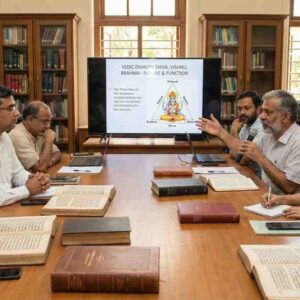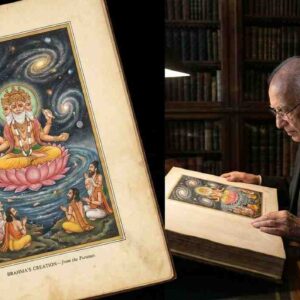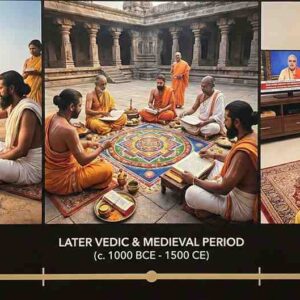Hinduism, often described as a way of life rather than a religion, intricately weaves togetherfaith,philosophy, andidentityto create a unique spiritual and cultural framework. These elements, while distinct in their roles, are deeply interconnected, shaping the beliefs, practices, and worldview of millions. This article explores the interplay between faith, philosophy, and Hindu identity, examining how each contributes to the holistic understanding of the tradition.
Faith: The Foundation of Hindu Spirituality
Faith in Hinduism is rooted in thedivine authority of sacred texts, rituals, and deities. It serves as the emotional and devotional core of Hindu identity, offering individuals a sense of purpose and connection to the divine.
Key Aspects of Faith:
- Sacred Texts: Scriptures like the Vedas, Puranas, and Bhagavad Gita provide spiritual guidance and moral teachings.
- Rituals and Worship: Practices such as puja (worship), yajnas (sacrifices), and pilgrimages reinforce faith through action and devotion.
- Deity Worship: Faith is often expressed through devotion to deities like Shiva, Vishnu, and Durga, each embodying specific cosmic qualities.
- Karma and Dharma: Belief in Karma (action and its consequences) and Dharma (righteous duty) governs ethical living and spiritual growth.
Faith provides the communal and cultural glue that binds Hindus, reinforcing shared values and traditions across generations.
Philosophy: The Intellectual Backbone
Hinduism’s philosophical tradition adds depth to its spiritual framework, encouraging introspection and intellectual exploration. Unlike faith, which often relies on devotion and divine authority, philosophy in Hinduism thrives onreason and inquiry.
Key Aspects of Hindu Philosophy:
- Metaphysics: Schools like Vedanta and Samkhya explore profound concepts like Brahman (ultimate reality) and Atman (self).
- Rational Inquiry: Philosophical texts such as the Upanishads emphasize questioning and critical thinking to understand the nature of existence.
- Paths to Liberation: Hindu philosophy outlines multiple paths to Moksha (liberation), including Karma Yoga(path of action), Jnana Yoga (path of knowledge), and Bhakti Yoga (path of devotion).
- Ethical Frameworks: Philosophy provides the reasoning behind moral duties and cosmic principles like Rita(cosmic order).
Philosophy in Hinduism complements faith by offering a rational framework for understanding spiritual beliefs and practices, ensuring they are not blind or dogmatic.
Hindu Identity: A Fusion of Faith and Philosophy
The synthesis of faith and philosophy forms the foundation of Hindu identity. It allows Hinduism to be both deeply spiritual and intellectually vibrant, accommodating a wide range of beliefs and practices.
How They Interconnect:
- Faith Shapes Philosophy: Devotional texts like the Bhagavad Gita blend religious faith with philosophical discourse, showing how devotion and reason can coexist.
- Philosophy Deepens Faith: Rational exploration of concepts like Dharma and Karma enriches the spiritual understanding of faith.
- Shared Cultural Practices: Festivals, rituals, and communal worship draw from both faith and philosophical principles, fostering a collective identity.
For example, theUpanishads, while deeply philosophical, are often integrated into religious rituals, demonstrating how Hinduism harmonizes these dimensions.
Challenges and Opportunities
The intersection of faith, philosophy, and identity is not without challenges:
- Faith vs. Rationality: Critics argue that excessive ritualism may overshadow the philosophical depth of Hinduism.
- Identity Politics: In contemporary contexts, Hindu identity is sometimes reduced to cultural or political symbols, ignoring its spiritual and philosophical richness.
However, these challenges also present opportunities to revisit and reinterpret Hindu traditions in a way that balances faith with reason, fostering a more inclusive and dynamic identity.
Conclusion
Faith, philosophy, and Hindu identity are inseparably linked, creating a multifaceted tradition that is both devotional and intellectual. Faith provides the emotional connection to the divine, philosophy offers the intellectual tools to explore existence, and together they shape Hindu identity as a living, evolving tradition. By embracing this interconnectedness, Hinduism continues to inspire spiritual growth and intellectual inquiry, ensuring its relevance in an ever-changing world.













